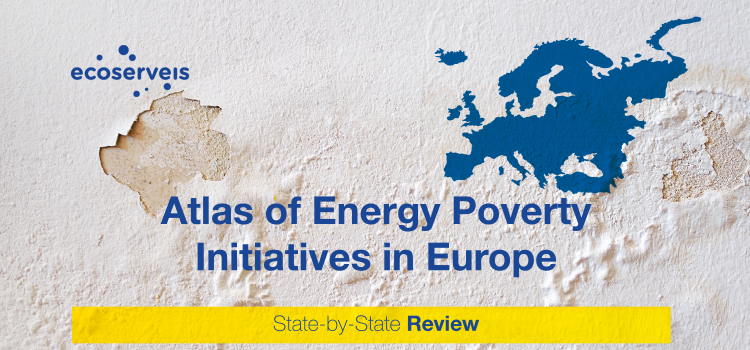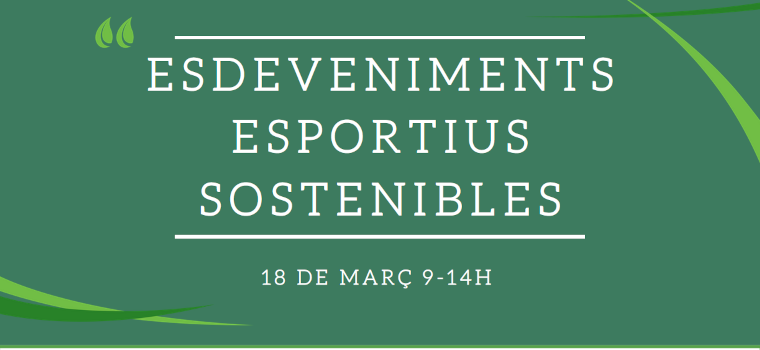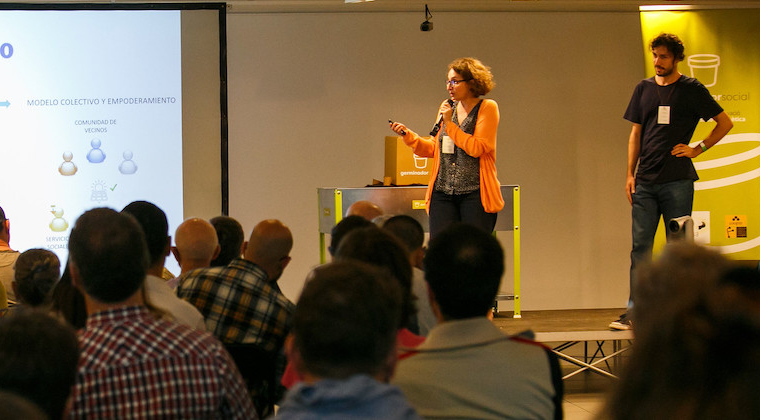Although there are significant differences between member states on the level of policy and program development for the alleviation of energy poverty, most member states have national experiences to build on. If not, they can adapt initiatives from countries with similar socioeconomic backgrounds, climate conditions, governance models, or policy trends.
The Atlas of Initiatives of Energy Poverty in Europe, promoted by Ecoserveis Association, is the product of an exhaustive review of the practices carried out around Europe at the end of 2016. The document comprises 65 best practices against energy poverty analysed and offers a portrait of the situation in the field, with the aim to facilitate the process of exchanging information about the actions themselves as well as the knowledge they have generated.
An analysis of these case studies has illustrated the importance of social agents’ contribution to the field; throughout Europe, they are building their expertise on energy poverty interventions and how to implement these measures in vulnerable households. The involvement of different but complementary agents, such as public departments on energy, housing, welfare, consumer protection and health, as well as civil society organisations, is key to shaping a resilient and efficient system to identify and tackle energy poverty.
At both, national and regional levels, it is highly recommended to design strategies that foresee short-term measures to alleviate the emergency cases, but also long-term strategies addressed to tackle the structural causes. The combination of short and long-term strategies could effectively offset the increasingly higher trends of energy poverty rates observed in many countries.
A Link between Energy Poverty and Health Coasts

Although several case studies have indicated that energy poverty has a direct impact on health, initiatives involving health professionals are scarce. The utilisation of health professionals in energy poverty programs could be very promising in terms of raising awareness, identifying vulnerable households, and improving the quality of life of vulnerable households.
Additionally, energy poverty is linked with substantial indirect costs to health systems in the member states. To establish a direct link between energy poverty measures and the associated reduction of costs within health systems could be an opportunity to raise awareness among decision makers regarding the need to invest in long-term strategies to reduce energy poverty, as a way to optimise public budgeting.
Cooperation between Stakeholders, Indispensable against Energy Poverty
Collaboration and shared responsibility is essential; energy efficiency is an emerging field in many countries, so the policy-making process should foresee the integration of lessons learned from local initiatives as well as progress achieved in similar countries.
There were a range of barriers associated to achieving energy efficiency in many of the case studies. One of the major constraints was the lack of political will or appropriate collaboration between relevant agents, rather than financial limitations. This underlines the need to collaborate and create synergies between several stakeholders, which might help to ease situations that are hindered by a lack of knowledge or expertise.
Cooperation between stakeholders has been proven to boost creative solutions to the problems encountered. The key aspects to consider when planning energy poverty strategies at national, regional or local levels are:
- Work on stablishing a strong network. Involve public and private (companies and civil society) stakeholders and ensure cross-cutting knowledge and competencies by involving stakeholders from different fields (e.g. energy, consumer protection, housing, health and welfare). To maintain strong relationships, it is vital to implement regular meetings and targets.
- Foresee emergency-relief measures as well as long-term strategies. Long-term sustainability is a key-factor to developing efficient programmes.
- Learn from the success and challenges of other organisations and countries at local level, in other countries and at international level. Spending time learning from other initiatives can actually be time-effective.
To sum up, and as it has been highlighted, there are in fact many energy poverty initiatives around Europe and while taking time to learn from them before implementing a new one can seem time-consuming it can in fact save time and help to achieve better results.



